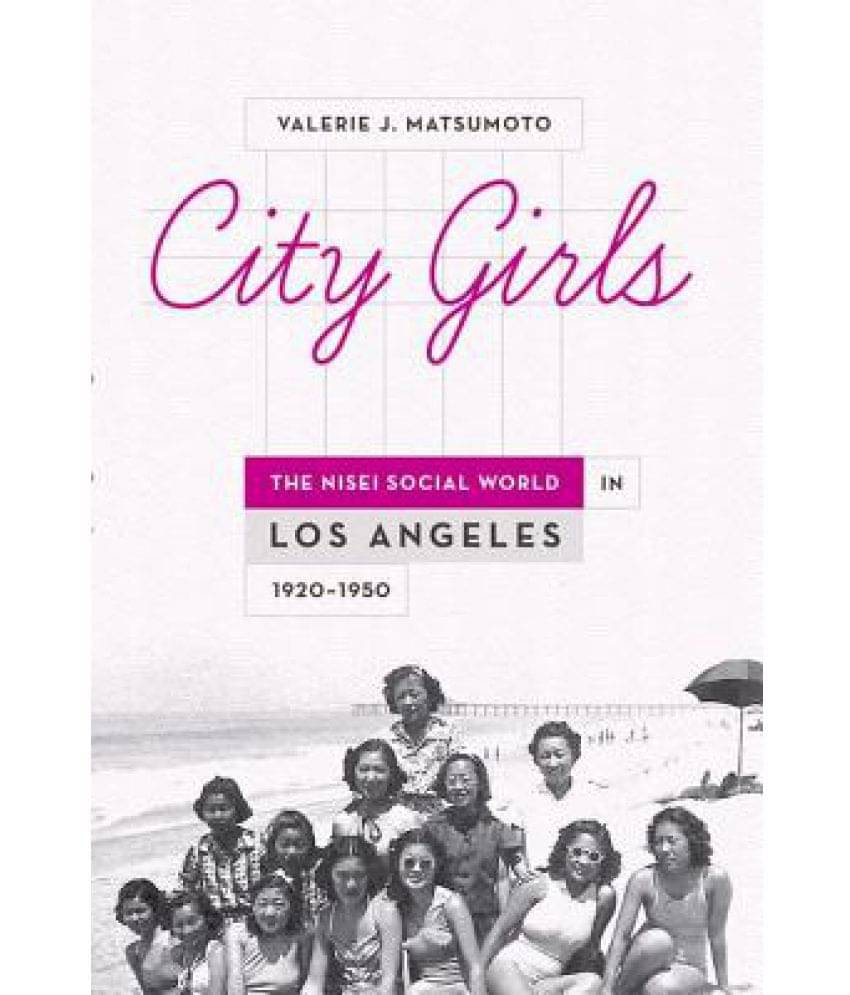Something went wrong. Please refresh the page and try again.
Something went wrong. Please refresh the page and try again.
Notifications can be turned off anytime from settings.
Item(s) Added To cart
Qty.0
Something went wrong. Please refresh the page and try again.
Something went wrong. Please refresh the page and try again.
Exchange offer not applicable. New product price is lower than exchange product price
Please check the updated No Cost EMI details on the payment page
Exchange offer is not applicable with this product
Exchange Offer cannot be clubbed with Bajaj Finserv for this product
Product price & seller has been updated as per Bajaj Finserv EMI option
Please apply exchange offer again
Your item has been added to Shortlist.
View AllYour Item has been added to Shopping List
View AllSorry! City Girls is sold out.


You will be notified when this product will be in stock
| ||||||||||||||
Learn More about the Book
Even before wartime incarceration, Japanese Americans largely lived in separate cultural communities from their West Coast neighbors. Although the Nisei children, the American-born second generation, were U.S. citizens and were integrated in public schools, they were socially isolated in many ways from their peers. These young women found rapport in ethnocultural youth organizations, a forgotten world of female friendship and camaraderie that Valerie J. Matsumoto recovers in this book.
Through extensive networks of social clubs, young Japanese American women competed in sports, socialized with young men, and forged enduring friendships. During the 1920s and 1930s, Nisei girls' organizations flourished in Los Angeles, then home to the largest Japanese American population. In clubs with names such as the Junior Misses and Tartanettes, girls gained leadership training, took part in community service, found jobs, and enjoyed beach outings and parties. Often sponsored by the YWCA, Buddhist temples, and Christian churches, these groups served as a bulwark against racial discrimination, offering a welcoming space that helped young women navigate between parental expectations and the lure of popular culture. Indeed, their dances, meetings, and athletic events filled the social calendars in the ethnic press. As cultural mediators and ethnic representatives, these urban teenagers bridged the cultures of the Japanese American community and mainstream society, whether introducing new foods, holidays, and rituals into the home or dancing in kimono at civic events. Some expressed themselves as poets, writers, and journalists and took leading roles in the development of a Nisei literary network. Women's organizing skills and work would prove critical to the support of their families during World War II incarceration and community rebuilding in the difficult years of resettlement.
By bringing to life a dynamic and long-lasting world of friendship circles and clubs, City Girls highlights the ways in which urban Nisei daughters claimed modern femininity, an American identity, and public space from the Jazz Age through the postwar era.
Review Quotes
1.
"City girls indeed! A determined, spunky, hard-working, fun-loving group of women who endure hardship but also just wanted to have fun. Valerie Matsumoto brings their lively world to life through vivid and sympathetic prose. The Nisei women were simultaneously so American and so non-American, familiar and surprising. A wonderful recovery of history!" --Gordon H. Chang, Stanford University
2.
"City Girls raises a number of important questions about community mobilization and empowerment that resonate with current affairs and concerns Matsumoto's newest book provides a solid foundation for future scholars to build upon as we continue to examine the far-reaching implications of sisterhood."--The Journal of the History of Childhood and Youth
The images represent actual product though color of the image and product may slightly differ.
Snapdeal does not select, edit, modify, alter, add or supplement the information, description and other specifications provided by the Seller.
Register now to get updates on promotions and
coupons. Or Download App